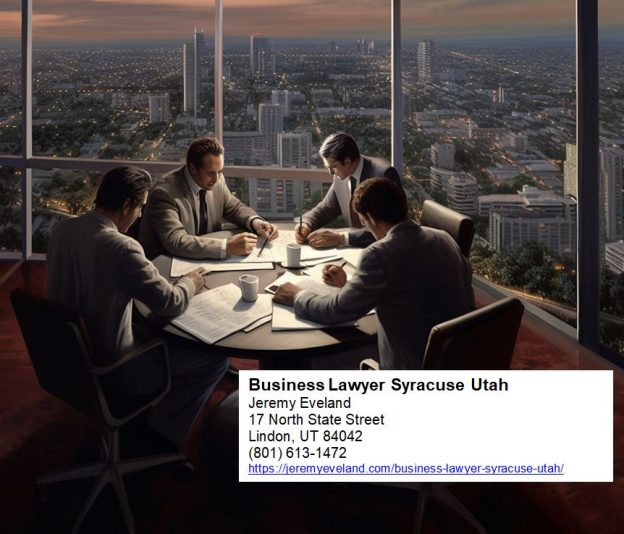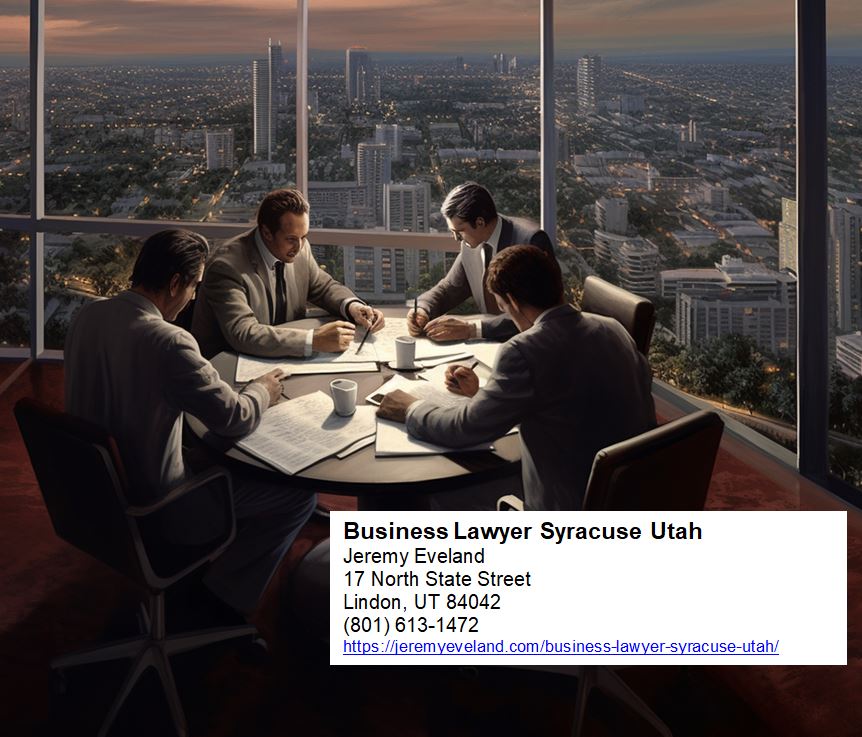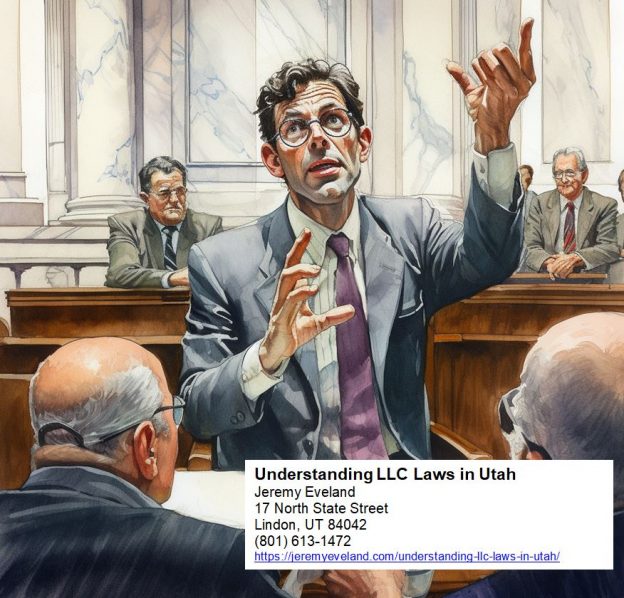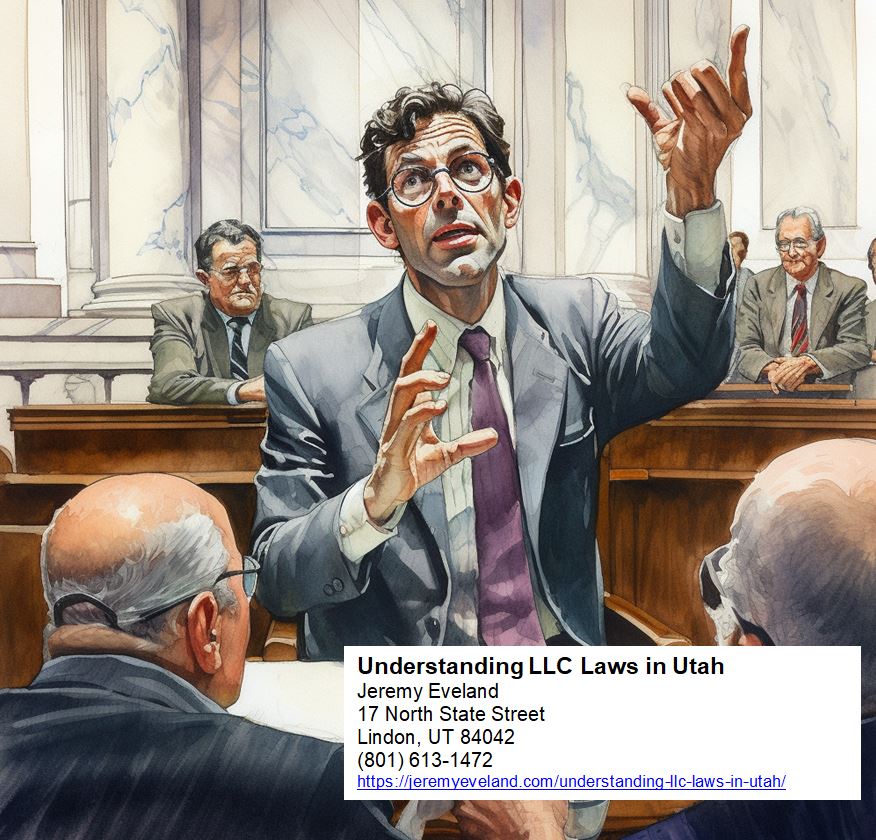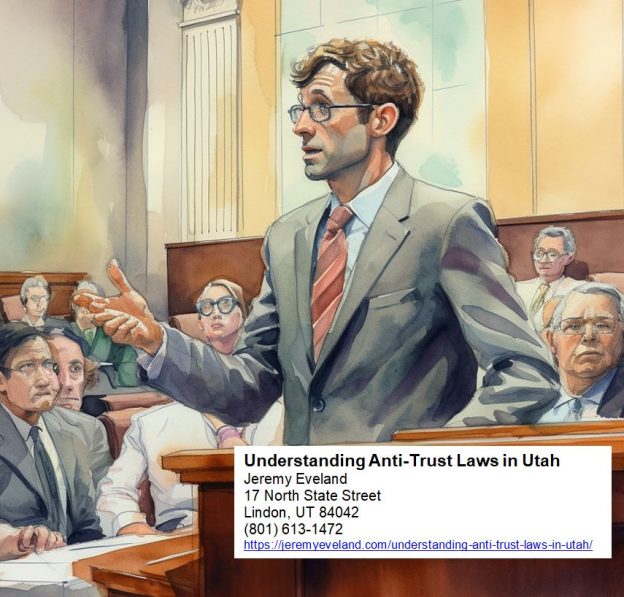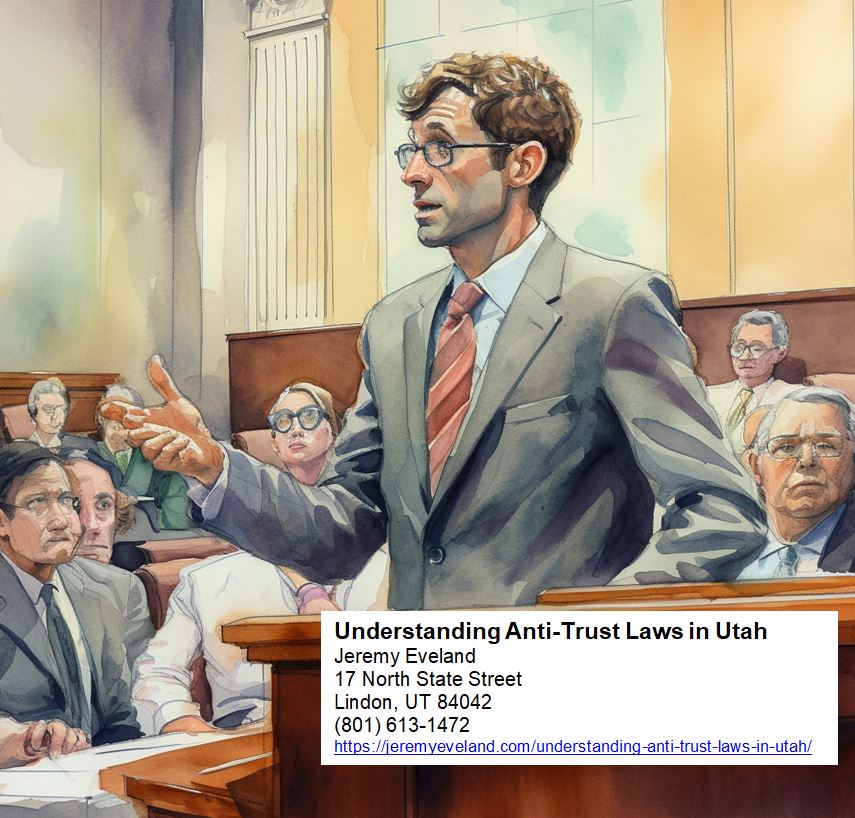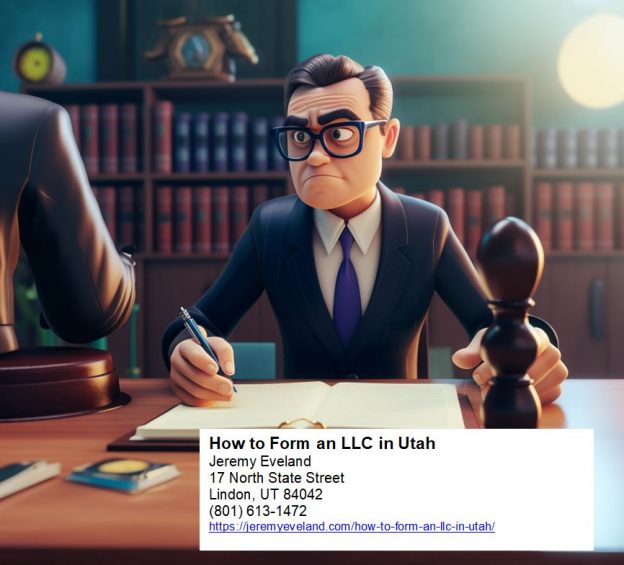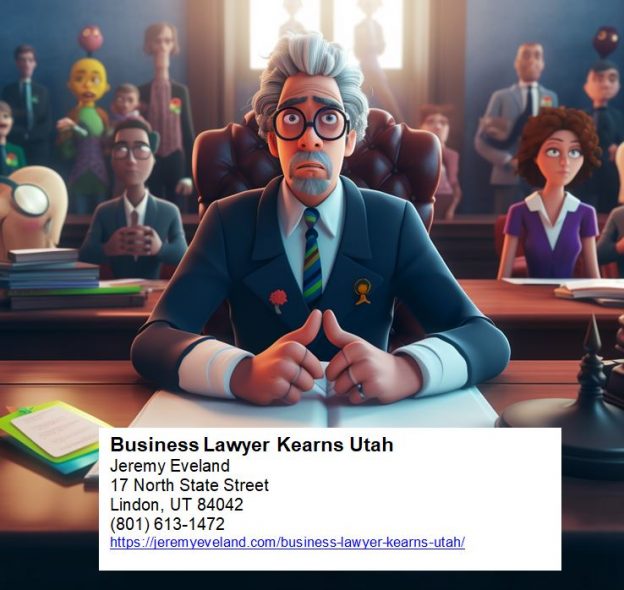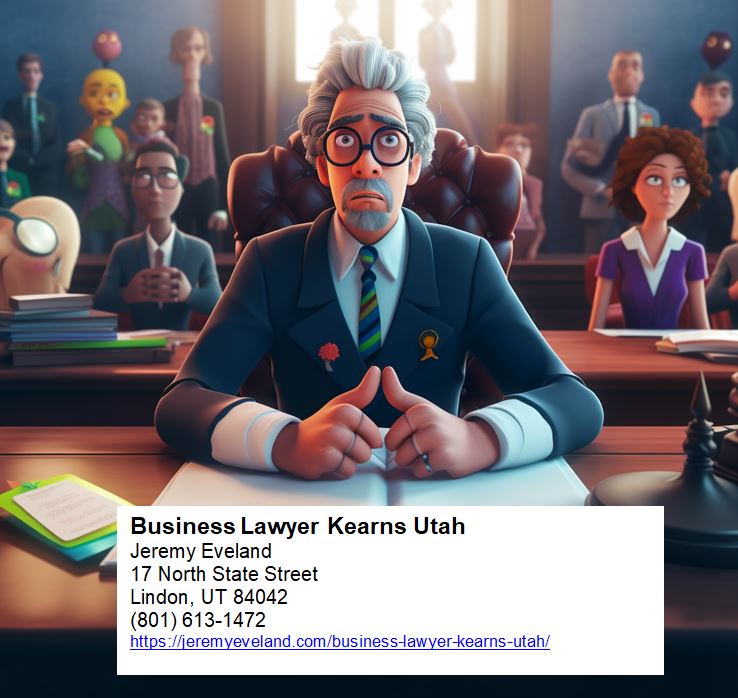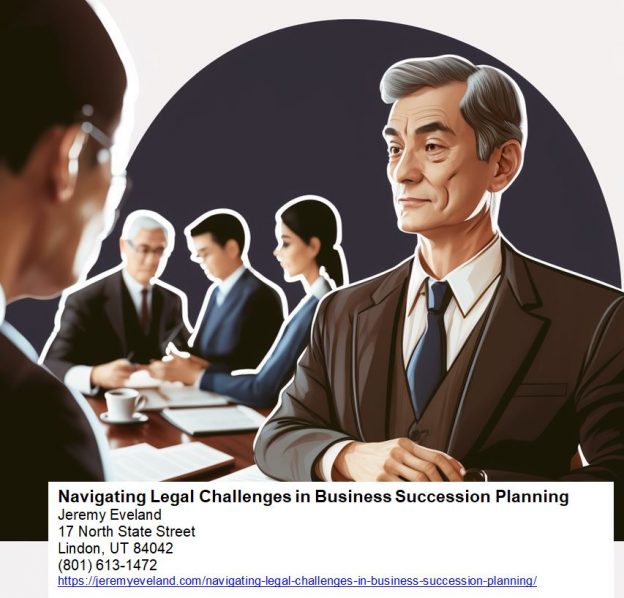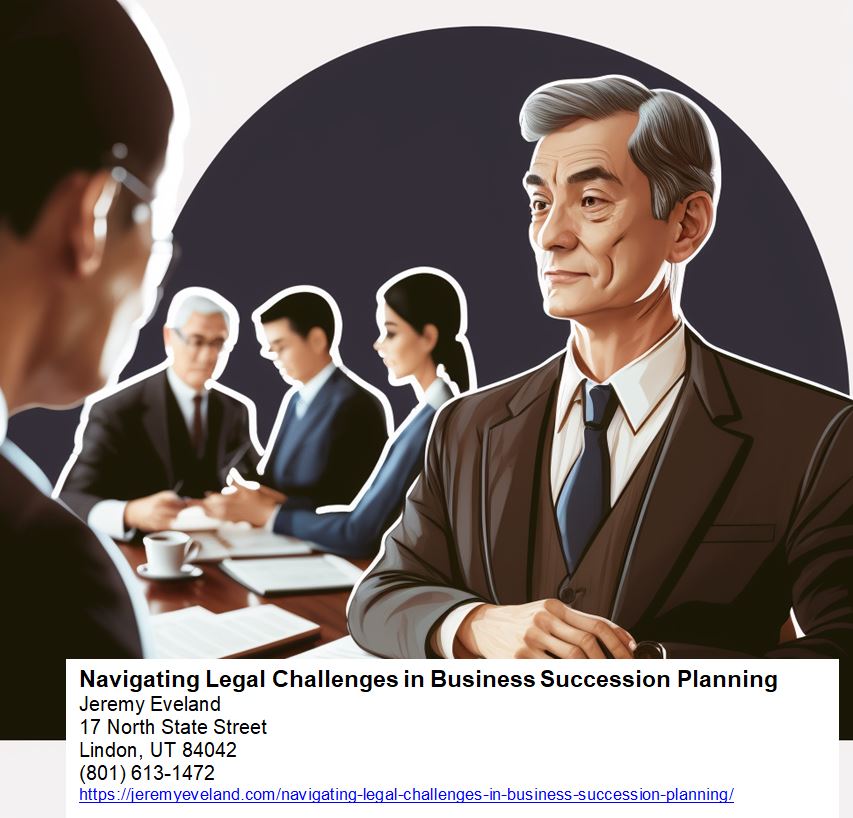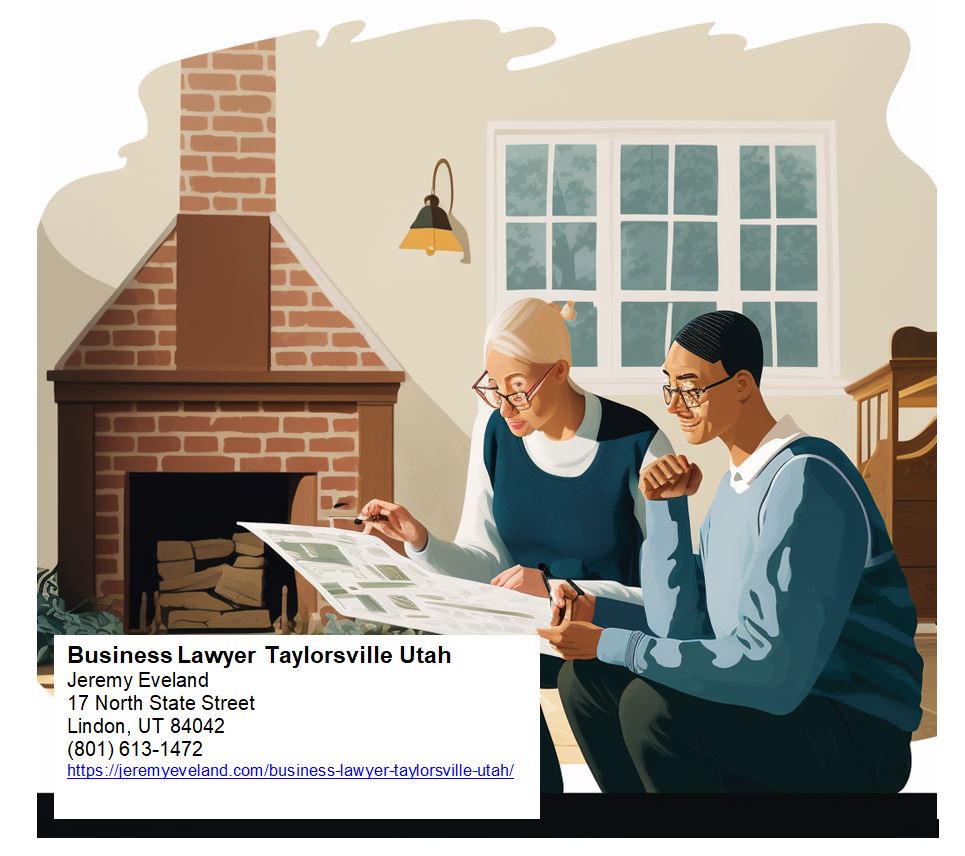The Essential Guide to Business Lawyers in Syracuse, Utah: Services, Subtopics, and Secrets
The Importance of Business Lawyers in Syracuse, Utah
What is a Business Lawyer, and Why are They Important?
Business lawyers are legal professionals who specialize in providing advice and guidance to business owners on a range of legal matters. They can help with everything from setting up the business to drafting contracts, navigating employment law issues, and protecting intellectual property rights. The importance of having a business lawyer cannot be overstated.
Without proper legal guidance, businesses may be exposed to unnecessary risk and liability that could threaten their financial stability. One of the primary roles of a business lawyer is to minimize risk by ensuring that all legal requirements are met.
This could involve drafting contracts that protect the interests of all parties involved in a transaction or helping businesses navigate complex laws related to employment or intellectual property. In addition to preventing legal issues from arising, business lawyers can also provide valuable advice when disputes do occur.
The Legal System in Syracuse, Utah
Syracuse, Utah is part of the state’s Second District Court which serves both Weber and Davis counties. The court system in Syracuse operates within the framework of state law but also has its own set of local rules that govern court procedures specific to this jurisdiction.
In addition to the district court, there are several other courts in Syracuse that serve different purposes. For example, small claims cases (where claims do not exceed $11,000) are heard in justice courts while appeals from district court decisions go through the Utah Court of Appeals or Supreme Court.
Navigating the legal landscape can be challenging for even experienced business owners which is why having an experienced business lawyer on hand can be so valuable. An attorney who specializes in these matters will have insight into local nuances that could impact their clients’ cases as well as knowledge about federal statutes and regulations.
Conclusion: Why Businesses Need Expert Legal Help
Running a business is a complicated endeavor, and there are many legal considerations that must be taken into account. From ensuring compliance with state and federal laws to protecting intellectual property rights, business owners face a range of challenges that require expert legal guidance.
Working with an experienced business lawyer can help companies avoid costly mistakes while also providing peace of mind. Through strategic advice and careful planning, attorneys in this field can help businesses reach their goals while mitigating risk along the way.
Services Offered by Business Lawyers in Syracuse, Utah
Formation of Business Entities
When starting a business, it is important to decide what type of entity you want to form. The most common types of business entities are LLCs and corporations.
An LLC, or limited liability company, provides the same benefits as a corporation while also offering more flexibility in terms of management and taxation. A corporation, on the other hand, offers limited liability protection for its owners but requires more formalities and paperwork to maintain.
A business lawyer in Syracuse can help you choose the best entity type for your business based on your goals and long-term plans. They can also assist with the formation and registration process, which includes drafting articles of incorporation or organization, filing with the state government, obtaining necessary licenses and permits, and creating bylaws or an operating agreement.
Contract Drafting and Review
Contracts are an essential part of any business transaction—they establish expectations between parties involved in a deal or agreement. However, contracts can be complex legal documents that require careful attention to detail.
A Syracuse business lawyer can draft contracts tailored specifically to meet your needs as well as review existing contracts to ensure that they meet legal requirements while minimizing risks associated with potential disputes. Examples of contracts that may need drafting or review include employment agreements, purchase agreements (for goods or services), non-disclosure agreements (NDAs), shareholder agreements and partnership agreements.
Employment Law
Employment law covers a range of issues related to hiring, managing and terminating employees. In Syracuse Utah businesses have specific legal requirements when it comes to employment practices such as minimum wage standards , employee leave benefits (e.g., sick leave), discrimination protections under Title VII Civil Rights Act 1964 etc. A Syracuse-based attorney who specializes in employment law matters can draft employee handbooks that outline company policies, advise on compliance with state and federal employment laws, and help resolve disputes that may arise between employees or between an employee and your business.
Advice on Compliance with State and Federal Employment Laws
Compliance with state and federal employment laws is crucial to avoid legal problems. In Syracuse, businesses must comply with the Utah Labor Code as well as federal labor laws such as the Fair Labor Standards Act (FLSA). A business lawyer can help ensure that your business is compliant by providing advice on matters such as:
– Wage and hour issues – Discrimination in hiring or termination
– Employee benefits – OSHA regulations
Why Choose a Business Lawyer in Syracuse Utah for Your Legal Needs?
Choosing a local business lawyer has several advantages. They are familiar with local laws, regulations, and judges which gives them an edge when it comes to understanding the legal landscape. Additionally, they are usually more accessible than out-of-state attorneys , which can be helpful if you need quick legal advice or assistance.
A business lawyer in Syracuse Utah offers essential services to businesses of all sizes including formation of business entities , contract drafting/review , employment law matters such as drafting employee handbooks etc., advising on compliance with state & federal employment laws. By working closely together with a skilled attorney who understands your specific needs you can avoid potential legal risks while focusing more time on growing your business.
Niche Subtopics for Business Lawyers in Syracuse, Utah
Intellectual Property Law: Protect Your Business Assets
Intellectual property (IP) law covers a range of intangible assets that businesses can own, such as patents, trademarks, copyrights, and trade secrets. IP is increasingly important for businesses in Syracuse and across the United States as they seek to maintain their competitive edge. A business lawyer with expertise in IP law can help protect your company’s valuable assets.
For example, if you have an innovative product or technology that you want to bring to market, a lawyer can assist with the patent application process. This includes conducting a search to ensure that your invention is novel and non-obvious before drafting and filing the actual patent application.
Similarly, if you have created a unique brand or logo for your business, a lawyer can help with trademark registration. This ensures that you have exclusive rights to use your mark in commerce and can prevent others from infringing on your intellectual property.
If someone else is using your intellectual property without permission, an attorney can help enforce your rights through litigation or other means. This might involve sending a cease-and-desist letter or filing a lawsuit to seek damages.
Commercial Real Estate Law: Secure Your Business Location
Commercial real estate law governs the legal issues surrounding buying, selling or leasing commercial real estate properties. Owning or leasing commercial real estate can be complex due to zoning laws and regulations around safety requirements for certain types of buildings (such as those used for manufacturing). A business lawyer with experience in commercial real estate law can help ensure that all legal requirements are met when purchasing or leasing office space or other commercial properties.
They may also review contracts related to property sales (including purchase agreements) and leases before finalizing them. If disputes arise regarding commercial real estate transactions—for example, there is an issue over property boundaries, lease terms or other legal matters—an attorney may help resolve the matter through negotiation or litigation as necessary.
A business lawyer with expertise in intellectual property law and commercial real estate law can provide invaluable services to businesses in Syracuse and beyond. By protecting your company’s intellectual property and ensuring legal compliance when purchasing or leasing commercial properties, you can help your business thrive and avoid costly legal disputes.
Rarely Known Small Details
The Importance of Confidentiality Agreements
Confidentiality agreements, also known as non-disclosure agreements (NDAs), are legal documents that protect sensitive information from being shared with third parties. It is important for businesses to understand the need for confidentiality agreements to protect their trade secrets, proprietary information, and other confidential information. Business lawyers in Syracuse, Utah can draft and review confidentiality agreements for employers and employees to ensure that their sensitive information is protected.
One common mistake that businesses make when drafting a confidentiality agreement is failing to include specific details about what information is considered confidential. An effective confidentiality agreement should clearly define what constitutes confidential information and outline the consequences of disclosing such information.
It should also state the duration of the agreement’s validity and any exceptions to the confidentiality rule – such as if a court compels disclosure.
Proper Business Record Keeping
Proper business record keeping is crucial for any business in Syracuse, Utah. Accurate documentation helps protect businesses from disputes with employees, customers or vendors while providing evidence in case of litigation or an audit by state or federal agencies. Business lawyers play a significant role in helping companies set up proper record keeping systems.
Importance of Regular Legal Reviews
Businesses should conduct regular legal reviews with their lawyers to identify potential problems before they become serious issues. These reviews provide businesses an opportunity to seek advice on compliance matters or potential risks that could pose liability issues down the road. In Syracuse, Utah, businesses should consider taking legal advice before making significant business decisions.
During legal reviews, businesses can ask their lawyers to review contracts, employee handbooks and policies, and other important legal documents. In addition to reviewing these documents, the lawyer may also inquire about whether the company is following all relevant laws and regulations.
This helps businesses avoid costly litigation or penalties for noncompliance.
Long-Term Benefits of Dispute Resolution
Businesses may face disputes in various forms such as contract disputes between employees or between the business and a vendor or customer. While it is tempting to try and settle these disputes quickly, through mediation for example; a skilled business attorney can help find long-term resolutions that protect the interests of all parties involved. When considering dispute resolution options in Syracuse, Utah businesses should weigh the potential costs of litigating versus settling a dispute out-of-court.
Litigation can be time-consuming and expensive; whereas alternative dispute resolution methods like arbitration or mediation offer a more cost-effective solution with less strain on resources. Conclusion
Hiring a business lawyer in Syracuse, Utah can help companies navigate complex legal matters while protecting them from potential liability issues. From drafting contracts to providing guidance on employment law compliance issues to representing them during litigation; experienced business lawyers can provide valuable counsel at every stage of a business’ life cycle.
By taking proactive steps such as regular legal reviews; proper record keeping; confidentiality agreements etc.; businesses and their attorneys can minimize risks while maximizing opportunities for growth and success. With the right strategy in place that aligns with your company’s goals maintaining compliance & avoiding litigation becomes easier than ever before!
Areas We Serve
We serve individuals and businesses in the following locations:
Salt Lake City Utah
West Valley City Utah
Provo Utah
West Jordan Utah
Orem Utah
Sandy Utah
Ogden Utah
St. George Utah
Layton Utah
South Jordan Utah
Lehi Utah
Millcreek Utah
Taylorsville Utah
Logan Utah
Murray Utah
Draper Utah
Bountiful Utah
Riverton Utah
Herriman Utah
Spanish Fork Utah
Roy Utah
Pleasant Grove Utah
Kearns Utah
Tooele Utah
Cottonwood Heights Utah
Midvale Utah
Springville Utah
Eagle Mountain Utah
Cedar City Utah
Kaysville Utah
Clearfield Utah
Holladay Utah
American Fork Utah
Syracuse Utah
Saratoga Springs Utah
Magna Utah
Washington Utah
South Salt Lake Utah
Farmington Utah
Clinton Utah
North Salt Lake Utah
Payson Utah
North Ogden Utah
Brigham City Utah
Highland Utah
Centerville Utah
Hurricane Utah
South Ogden Utah
Heber Utah
West Haven Utah
Bluffdale Utah
Santaquin Utah
Smithfield Utah
Woods Cross Utah
Grantsville Utah
Lindon Utah
North Logan Utah
West Point Utah
Vernal Utah
Alpine Utah
Cedar Hills Utah
Pleasant View Utah
Mapleton Utah
Stansbury Par Utah
Washington Terrace Utah
Riverdale Utah
Hooper Utah
Tremonton Utah
Ivins Utah
Park City Utah
Price Utah
Hyrum Utah
Summit Park Utah
Salem Utah
Richfield Utah
Santa Clara Utah
Providence Utah
South Weber Utah
Vineyard Utah
Ephraim Utah
Roosevelt Utah
Farr West Utah
Plain City Utah
Nibley Utah
Enoch Utah
Harrisville Utah
Snyderville Utah
Fruit Heights Utah
Nephi Utah
White City Utah
West Bountiful Utah
Sunset Utah
Moab Utah
Midway Utah
Perry Utah
Kanab Utah
Hyde Park Utah
Silver Summit Utah
La Verkin Utah
Morgan Utah
Business Lawyer Syracuse Utah Consultation
When you need help from a Business Lawyer near Syracuse Utah, call Jeremy D. Eveland, MBA, JD (801) 613-1472 for a consultation.
Jeremy Eveland
17 North State Street
Lindon UT 84042
(801) 613-1472
Related Posts
10 Tips for Negotiating Lease Agreements
Business Lawyer Spanish Fork Utah
How To Start A Non-Profit In Utah
What are the Trademark Laws in Utah
Business Lawyer Pleasant Grove Utah
How to Calculate Overtime Pay in Utah
Business Lawyer Cottonwood Heights Utah
Understanding Utah’s Consumer Protection Laws
Comprehensive Guide To Hiring A Business Lawyer
Business Lawyer Springville Utah
Mergers and Acquisitions from a Legal Perspective
Business Lawyer Eagle Mountain Utah
Understanding Anti-Trust Laws in Utah
Business Lawyer Cedar City Utah
Understanding LLC Laws in Utah
Business Lawyer Kaysville Utah
Understanding Utah’s Non-Profit Laws
Business Lawyer Clearfield Utah
Business Lawyer American Fork Utah
[geocentric_weather id=”f2d49501-9b88-4c6a-8457-1055f4127e22″]
[geocentric_about id=”f2d49501-9b88-4c6a-8457-1055f4127e22″]
[geocentric_neighborhoods id=”f2d49501-9b88-4c6a-8457-1055f4127e22″]
[geocentric_thingstodo id=”f2d49501-9b88-4c6a-8457-1055f4127e22″]
[geocentric_busstops id=”f2d49501-9b88-4c6a-8457-1055f4127e22″]
[geocentric_mapembed id=”f2d49501-9b88-4c6a-8457-1055f4127e22″]
[geocentric_drivingdirections id=”f2d49501-9b88-4c6a-8457-1055f4127e22″]
[geocentric_reviews id=”f2d49501-9b88-4c6a-8457-1055f4127e22″]
